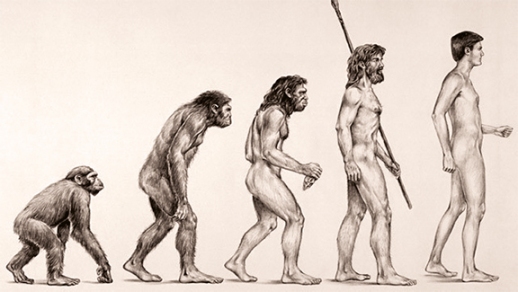BY RICHARD G. MENDOZA, MPH, PHD
At the turn of the nineteenth century, Napoleon and his army were on their way across the Mediterranean Sea to conquer the Egyptians. One starlit night, a number of Napoleon’s soldiers, products of the French Revolution and its rejection of God, were trying to outdo each other in giving reasons why they knew there was no God.
Napoleon, in his characteristic manner, was pacing back and forth on the deck listening to their reasoning, when one of them asked him what he thought of what they had said. He thoughtfully responded, “Very good, but if there is no God, then who made and sustains all of those?” And he pointed upward at the stars looking down on them.
That is a good question. Who made this world and the billions of stars, and who charts their course and keeps them in that course? Many gods have been worshiped by people throughout the ages. And people worship many different gods today: Buddha, Shinto, Satan, the gods of the Hindus, and others. Their followers each claim that their god is the only true and supreme God in the world. And many have been taught that God is not the Creator of all that we see.
They believe instead in what Darwin taught: a theory called evolution, which teaches our children that the world and the cosmos came into being through a series of changes that took place over billions of years. This theory of origins teaches that once the first cell was formed, it went through many biological and geological changes, and the marvelous universe came about. Blind chance and miraculous changes account for the intricate universe that we see about us. Can all of this miraculous universe be simply a product of changes in nature, not guided by any supreme intelligence but just happening randomly here and there?
As we examine the intricate design of almost everything we see on this earth and in this universe, we must conclude that there is an intelligence at work in the creation and sustaining of life on this earth. The whole world was excited to see the amazing feat of the first space shuttle flight. They saw the rocket ignite, and then the supporting mechanism fall away as the mighty power of the engine lifted the vehicle heavenward. We listened with keen anticipation to regular reports on the capsule’s progress as it separated from the shuttle and continued on its way through space.
Radio messages from the astronauts and their detailed descriptions reminded us of the years of research and planning that had been necessary to build and launch the Columbia, thrusting it into space and safely returning it to earth. Had anyone watching the Columbia during her flight declared that the whole project was the result of blind chance, he would have been labeled insane.
As we look at the heavens and realize that the numberless stars above are guided in their assigned orbits with such precision that astronomers can predict the exact location of each heavenly body years into the future, we begin to realize that a Master Intelligence obviously has been involved with the design, creation, and control of the complex universe in which we live.
That Master Designer is God!
Let’s find our more about Him. Where should we start in this search for the handiwork of God? Let’s see what the Psalmist had to say about the way man was created: “I will praise You, for I am fearfully and wonderfully made; Marvelous are Your works.” (Psalm 139:14).
The design of the human body demands the existence of a Designer. Have you ever wondered about all that is involved in the simple act of seeing? Scientists tell us that the delicate engineering of the eye’s cornea and lens make the most advanced camera seem like child’s toy by comparison. The tiny rods and cones in the eye change light into electro-chemical impulses through processes even the most sophisticated laboratory can’t reproduce.
Brain cells transform these electrical impulses into the miracle of seeing-something no high-tech computer can come close to doing. Darwin once stated that the thought of the eye, and how it could possibly be produced by natural selection, made him ill. And here’s why: The human eye could not have evolved over long periods of time, because it is absolutely useless unless complete.
The lens, which focuses light, would be useless without the retina, which senses light. Vision involves a complete system of organs, all interrelated, all thoroughly designed. That’s the way the human body is.
All parts perform incredibly complicated tasks. No wonder the Psalmist said we are fear-fully and wonderfully made! You probably remember what God had to say about the origin of man: “… Let Us make man in Our image, according to Our likeness.” (Genesis 1:26). It was an all-wise, caring God who gave man those two eyes to help him in seeing the wonders of His Creator. Adam and Eve did not just evolve or just happen. The Bible states that God designed our bodies in His image. He is the Great Engineering Intelligence who designed us and then brought us into being!
Man is very complicated and could only have been designed by a very wise Designer.
Please follow this series and be filled with more wisdom about creation. This will strengthen your faith in God, the creator. May the Lord bless you!
For comments, write me at chardgrace@yahoo.com








